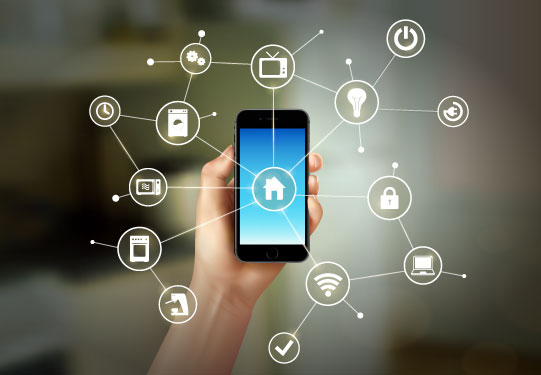
We’ve all heard about the Internet of Things (IoT). It’s either great or terrible, depending on who you ask. But what is it, exactly?
The Internet of Things is the internet-able nature of modern physical devices, vehicles, and buildings. You may also have heard of IoT products as connected devices or smart devices.
How does the Internet of Things work?
Typically, Internet of Things devices have sensors and software that enable the collection and exchange of data via the internet. IoT objects can be controlled remotely to allow direct integration with computer systems, which, it’s argued, results in economic benefit and improved efficiency for users.
IoT shopping applications, for example, could track a phone’s location to learn a person’s shopping habits. Companies will use this data to target individuals with special offers for their favorite shops and products.
A shopping app could also link to a smart fridge, which would decide what food is needed (based on past consumption) and send the grocery list directly to a person’s phone. In fact, it’s entirely possible a smart fridge could order products automatically without any human interaction.

The Internet of Things might also enhance home security, via a notification or live camera feed sent to your phone anytime someone enters your home. IoT could even make the dream of a self-sustained home a possibility. Imagine running a bath, vacuuming, or putting the kettle on—just by swiping a smart app.
The Internet of Things and security concerns
IoT application goes further than just gimmicks and consumer products, though. Large-scale projects, such as smart grids, smart homes, intelligent transportation, and smart cities, are also embracing IoT. In fact, some cyber experts estimate there will be as many as 50 billion IoT objects by 2020.
A system of such massive interconnection would have significant benefits, such as allowing universal access to information and a forced transparency on governments (we can see them, just as they see us).
However, the potential threat to privacy is staggering. And while the hope is that transparency will breed decency in governments, it’s more likely they will use IoT for social control and political manipulation.
Security concerns will be an issue. Chiefly, remotely controlled IoT devices are perfect prey for man-in-the-middle attacks.
IoT leads to data mining and privacy issues
On the surface, it seems the Internet of Things and the resulting data mining are utterly incompatible with privacy.
Household privacy is completely compromised by analyzation of network traffic from smart devices. A smart thermostat could note changes in room temperature to gauge when people are enjoying a spot of bedroom activity, for instance.
There’s nothing to stop an insurance company tracking your entire life (either with their own smart devices or paying for data from someone else’s), then using the information to deny you health insurance or a claim. As data storage becomes smaller and less expensive, companies can keep data forever on the assumption it will be useful down the line.
Criticisms of IoT: How safe is the Internet of Things?
It’s easy to write this off as more scare-mongering. And let’s be honest: ExpressVPN has a finger in the privacy solution pie. But prominent groups, such as The American Civil Liberties Union (ACLU) have expressed concern about IoT eroding the control people have over their own lives, stating:
“There’s simply no way to forecast how these immense powers—disproportionately accumulating in the hands of corporations seeking financial advantage and governments craving ever more control—will be used. Chances are big data, and the Internet of Things will make it harder for us to control our own lives, as we grow increasingly transparent to powerful corporations and government institutions that are becoming more opaque to us.”
A VPN will help protect your privacy
There are many privacy benefits to a VPN, which this blog has covered many times. Even better, an ExpressVPN router gives VPN protection to any Wi-Fi-enabled device, even ones that can’t normally run VPN software, like PlayStation, Xbox, TV, and all your smart devices.
This is a brave new world we enter, where everything can be stored and used to harm us. Make sure you know what you’re signing up for. And don’t give up too much for the benefit of such little convenience.
via expressvpn





